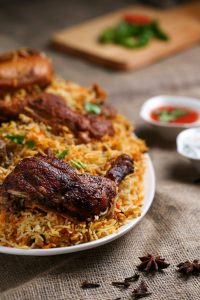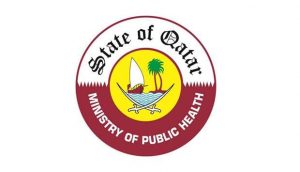 DOHA: The second annual Halal Qatar festival opened yesterday in Katara showcasing over 400 animals from various GCC states highlighting animal trade as an essential part of Qatari culture and heritage.
DOHA: The second annual Halal Qatar festival opened yesterday in Katara showcasing over 400 animals from various GCC states highlighting animal trade as an essential part of Qatari culture and heritage.
Katara President Abdul Rahman Al Khulaifi and Katara General Manager Khalid Al Sulaiti officially launched the 10-day festival, which comprises three main activities, including a showcase of breeding accessories and equipment used to groom animals, traditional pens and an auction.
This year’s edition of the festival has witnessed some improvements in terms of participation and the organisation of the event.
“There has been an increase in the number of participants from Qatar and other GCC states. Taking into consideration the challenges we encountered last year, we have enhanced some aspects such as increasing the size of the enclosures from 9sqm to 12sqm,” Al Sulaiti told reporters yesterday.
Among other attractions at the festival, he added, are a showcase of the process of making products out of sheep’s wool and of dairy products.
Regarding the buildings, we focused more on the GCC style of construction especially the market.
With a network of constructions going on in Katara as it undergoes major expansion, the next Halal Qatar festival would be held in an alternative venue outside Katara, said Al Sulaiti.
“The venue doesn’t really matter; what is more important is giving attention on activities that reflect Qatari heritage and culture such as Al Galayel, Al Gannas, Halal and other such festivals aimed at reflecting Qatari culture and heritage,” he said, adding Katara is concerned of Qatari and Arab heritage and is a place for interaction of different cultures.
With regard to the memorandum of understanding between Katara and Aspire which was signed on Thursday aimed at integrating sports and culture through various events, he said they have already identified some companies to collaborate on.
Halal Qatar also features old Qatari houses which showcase traditional life in Qatar, an old public Souq and hospitality tents that serve traditional foods and Arabic coffee. In addition there is a large play area for children.
The souq, housed in a building constructed in traditional GCC architecture, offers a wide array of traditional products such as Arabic perfumes, Arabian swords, traditional Qatari dresses, gypsum miniature artworks, Qatari heritage boxes, tools used in falconry, paintings, honey and pickled food products.
“The opening of Halal Qatar was a great success; the festival honours Qatari culture and traditions which we are truly proud of, allowing us to reflect on our past to ensure a stronger future. This event promotes our cultural heritage whilst sharing our legacy with the younger Qatari generation, reminding them of the importance of cultural roots. This festival contributes to our long-term vision to educate, entertain and demonstrate the importance of cultural exchange,” said Al Khulaifi.
A highlight of Halal Qatar is a competition awarding up to QR100,000 in various categories including best ewe, best camel, best male and best local breed. A nine-member panel of judges from various GCC countries will select the winners in different categories of the competition.
Visitors are given the opportunity to interact with shepherds, as well as the chance to buy animals through the various auctions which already started yesterday.
The festival is open to the public until March 31 from 10am to 10pm.



